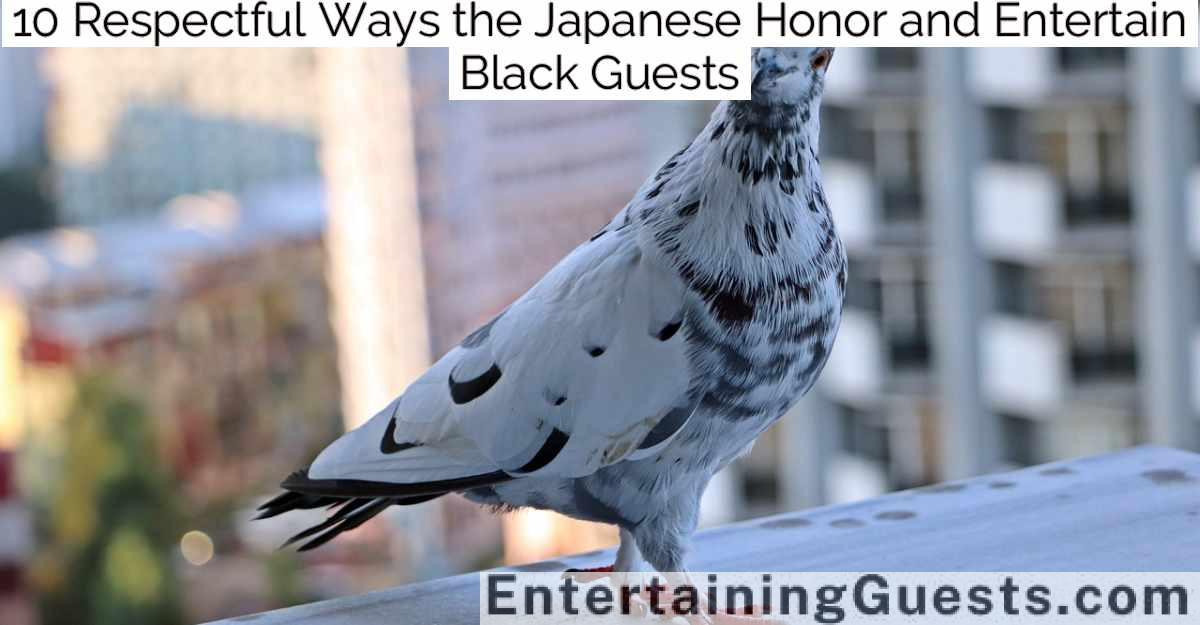Exploring the waters of international business relations is akin to mastering the art of an ancient tea ceremony; each step, from the initial greeting to the final goodbye, must be performed with precision and respect. You’re about to set sail on a journey where understanding the subtle nuances of Japanese culture can transform a simple meeting into a fruitful partnership. Whether it’s mastering the exchange of business cards, choosing the right gift, or knowing the ins and outs of dining etiquette, each detail plays a pivotal role. Let’s delve into how you can leave a lasting impression on your Japanese business guests, ensuring a harmonious blend of professionalism and cultural sensitivity. What comes next might just be the key to opening successful international collaborations.
Key Takeaways
- Present and accept business cards with both hands to show respect.
- Plan meetings that start on time and respect Japanese punctuality.
- Choose accommodations that prioritize cleanliness and location convenience.
- Arrange traditional dining and cultural tours to enhance their visit.
Understanding Business Card Etiquette
Exchanging business cards in Japan is a ritual that demands your utmost respect and attention. When you’re preparing to meet Japanese business guests, understanding the nuances of this practice is essential. It’s not merely about swapping contact information; it’s a formal introduction of your professional identity.
To start, always carry your business cards in a proper case. Presenting a card that’s bent or damaged is seen as disrespectful. When you receive a card, use both hands to accept it and make sure to take a moment to read it carefully. This shows your respect for the giver’s identity and position. Never shove it into your pocket or bag immediately after receiving it; instead, place it respectfully on the table in front of you during the meeting.
When you’re the one giving your card, present it with both hands as well, ensuring the text faces the recipient to make it easy for them to read. This small gesture acknowledges the importance of clear communication and respect for the other person.
Mastering Polite Greetings
Understanding the nuances of polite greetings is essential when welcoming Japanese business guests, as it sets the tone for the entire meeting. The initial interaction is not just about saying "hello"; it’s an opportunity to show respect and acknowledge the importance of your guests. As you prepare to make a positive first impression, keep in mind the following key points.
| Greeting Component | Details |
|---|---|
| Bowing | A respectful bow is customary. The depth and duration depend on the formality of the situation and the status of the person you’re greeting. |
| Verbal Greetings | Use phrases like "Hajimemashite" (nice to meet you) for first meetings and "Ohayou gozaimasu" (good morning), "Konnichiwa" (good afternoon), or "Konbanwa" (good evening), depending on the time of day. |
| Eye Contact | While eye contact is generally a sign of confidence in the West, it’s polite to slightly avert your gaze when bowing to a Japanese guest. |
| Handshake | If a handshake is offered by your Japanese guest, respond with a firm but not overly strong handshake. Be mindful of not initiating it. |
| Smile | A sincere, gentle smile conveys warmth and openness, helping to make your guests feel more comfortable and welcome. |
Dress Code Considerations
Dressing appropriately plays an important role in showing respect and professionalism when welcoming Japanese business guests. In Japan, business attire is generally conservative, so it’s wise to opt for a more formal approach. Men should wear dark-colored suits, white shirts, and conservative ties. It’s not just about the clothes, but also about making sure your shoes are polished, and your overall appearance is neat and tidy. For women, a business suit or a conservative dress paired with a modest neckline is appropriate. Avoid flashy jewelry or overly casual footwear, sticking instead to simple accessories and professional shoes.
Remember, the goal is to mirror the formality and respect inherent in Japanese business culture. Pay attention to the small details: make sure your outfit is pressed and free of wrinkles, your hair is neatly styled, and any tattoos or piercings are discreetly covered if possible. These nuances speak volumes about your respect for your guests and the seriousness with which you approach the meeting.
Understanding and adapting to the seasonality in dress can further demonstrate your attentiveness. For instance, lighter fabrics and colors are preferred in the warm, humid months, while heavier materials and darker colors are suitable for the colder seasons. This adaptability not only shows cultural sensitivity but also a keen awareness of comfort and appropriateness.
Gift-Giving Traditions
Delving into Japan’s business etiquette, it’s important to grasp the nuanced art of gift-giving, a practice deeply rooted in respect and thoughtfulness. When you’re preparing to welcome Japanese business guests, remember that presenting a gift isn’t just a polite gesture; it’s a meaningful way to express gratitude and build relationships.
To start with, you’ll want to select an item that reflects a sense of thoughtfulness and consideration for the recipient’s tastes and preferences. Opt for quality over quantity, choosing something that showcases your local culture or something unique to your company. Examples might include finely crafted local goods or specialty items from your region.
It’s of great importance to pay attention to the presentation as well. Gifts should be wrapped meticulously, as appearance matters greatly in Japanese culture. If you’re unsure about your wrapping skills, don’t hesitate to have the gift professionally wrapped. The act of unwrapping a gift is just as significant as the gift itself, so make sure it’s a visually pleasing experience.
When it comes time to present the gift, do so with both hands and a slight bow, signifying respect and humility. Accept any gifts offered to you in the same manner. It’s polite to express a degree of reluctance before accepting a gift to show humility.
Avoid giving gifts in sets of four, as the number is considered unlucky in Japanese culture. Similarly, stay clear of lilies, lotus blossoms, and camellias as they are associated with funerals.
Dining Etiquette Essentials
As you prepare to host Japanese business guests, understanding the subtleties of dining etiquette can greatly enhance the experience. You’ll need to navigate the ordering process with awareness and guarantee table manners align with Japanese customs. These insights will not only show respect but also foster a comfortable and respectful dining atmosphere.
Ordering Process Nuances
Understanding the nuances of the ordering process is essential when dining with Japanese business guests, as it reflects respect and appreciation for their culture. Here are key points to take into account:
- Allow Senior Guests to Order First: This shows respect for hierarchy, a vital aspect of Japanese culture.
- Suggest Sharing Dishes: It’s common to order multiple dishes for the table to share, promoting a sense of harmony and unity.
- Be Mindful of Special Diets: Before ordering, discreetly inquire about any dietary restrictions or preferences.
- Order Sake or Tea for the Table: Offering to order a round of sake or tea demonstrates hospitality and thoughtfulness.
Adhering to these guidelines ensures a smooth dining experience that honors your guests’ cultural expectations.
Table Manners Guide
Mastering table etiquette is essential when dining with Japanese business guests to show respect and facilitate a seamless experience. Here’s a concise guide to ensure you’re well-prepared:
| Behavior | Do | Don’t |
|---|---|---|
| Chopsticks | Use them to eat; place them on the holder when not in use. | Point with them or stick them upright in rice. |
| Bowls | Lift them off the table while eating. | Leave them on the table untouched. |
| Sushi | Dip the fish side in soy sauce. | Soak the rice in soy sauce. |
| Soup | Drink directly from the bowl. | Use a spoon, unless provided. |
| Saying Thanks | Say ‘itadakimasu’ before eating and ‘gochisosama’ after. | Start eating without acknowledging. |
Follow these pointers to navigate dining with grace.
Navigating Conversation Topics
Handling conversation topics with Japanese business guests requires careful consideration and respect for cultural nuances. You’ll want to create an environment that fosters mutual respect and understanding, ensuring that your guests feel comfortable and valued. Here’s how you can navigate this delicate aspect of your interaction:
-
Avoid Controversial Topics: Steer clear of potentially sensitive subjects such as politics, religion, and personal matters. These topics can be considered intrusive or offensive. Instead, focus on safe, universal themes like the weather, your city’s landmarks, or general business trends.
-
Show Interest in Japanese Culture: Express genuine curiosity about Japanese traditions, cuisine, or recent events in Japan. This not only breaks the ice but also shows your respect for their background. Avoid making assumptions or stereotypes; ask open-ended questions to encourage dialogue.
-
Business Discussions: When talking business, be patient and avoid pushing for immediate answers or decisions. Japanese business culture often emphasizes consensus and thorough consideration. Highlight the benefits of collaboration between your entities, focusing on long-term relationships rather than short-term gains.
-
Compliments and Appreciation: It’s polite to compliment your guests on their country, company, or achievements. However, do it with sincerity and moderation to avoid sounding insincere or flattering for personal gain.
Navigating conversation topics with tact and sensitivity underscores your respect for Japanese culture and can markedly contribute to a successful business relationship. Remember, the goal is to build trust and rapport, paving the way for fruitful discussions and collaborations.
Scheduling and Punctuality
After discussing how to navigate conversation topics with Japanese business guests, it’s important to focus on the importance of scheduling and punctuality in guaranteeing a smooth and respectful engagement. In Japanese business culture, punctuality is not just appreciated; it’s expected. Arriving on time—or even a few minutes early—demonstrates respect for your guests and their time, a fundamental aspect of Japanese etiquette.
When planning the schedule for your Japanese business guests, remember to allocate ample time for each activity. It’s vital to avoid back-to-back appointments without breaks in between. Japanese professionals appreciate a thoughtful, well-organized agenda that allows for a comfortable pace, facilitating thoughtful discussion and reflection. This consideration in scheduling showcases your respect for their working style and well-being.
Additionally, always communicate the schedule in advance and confirm appointments a day before they’re due. This gives your guests ample time to prepare and ensures that there are no misunderstandings or last-minute changes. If an unforeseen delay occurs, inform your guests as soon as possible. Prompt communication about any changes or delays is essential and shows that you value their time and commitment.
Hosting Meetings With Care
When you’re hosting Japanese business guests, it’s essential to set the proper tone from the outset. This means preparing efficient meeting agendas that respect both the time and the expectations of your guests. By doing so, you’ll foster an environment of respect and productivity, paving the way for successful collaborations.
Setting the Proper Tone
To set the proper tone for meetings with Japanese business guests, it’s essential you understand and respect their cultural nuances. Here are four key points to keep in mind:
- Start on Time: Punctuality is highly valued in Japanese culture. Initiate your meeting exactly as scheduled.
- Dress Appropriately: Opt for conservative business attire to show respect and professionalism.
- Use Formal Titles: Address your guests using their titles and surnames unless guaranteed to do otherwise. This shows respect for their position and status.
- Guarantee a Quiet Environment: Ensure the meeting room is quiet and free from interruptions. A calm atmosphere allows for focused discussions and conveys your respect for their presence and time.
Adhering to these guidelines will help you set the right tone and foster a respectful and productive meeting environment.
Efficient Meeting Agendas
Crafting an efficient meeting agenda is essential for maximizing the productivity of your time with Japanese business guests. Begin by clearly defining your objectives for the meeting, making sure they’re realistic and achievable within the allocated time. It’s also vital to familiarize yourself with cultural nuances; for example, the Japanese value punctuality, so starting and ending on time shows respect for their customs.
Prioritize agenda items, placing the most important topics at the beginning. This guarantees that key discussions receive the attention they deserve. Additionally, allocate specific time slots for each segment to keep the meeting on track.
Planning Entertainment Activities
Selecting engaging and culturally appropriate entertainment activities is essential for ensuring your Japanese business guests feel welcomed and valued. While planning these activities, it’s imperative to take into account preferences and cultural sensitivities to create a memorable and respectful experience. Here’s a guide to assist you in navigating this process:
-
Traditional Japanese Dining Experience: Opt for a reputable Japanese restaurant that offers a traditional dining experience, such as a Kaiseki dinner. This multi-course meal isn’t just about food; it’s an art form that reflects the seasonality and elegance of Japanese cuisine. Such an experience allows your guests to enjoy a taste of home while abroad, fostering a comfortable and respectful atmosphere.
-
Cultural Tours: Arrange a visit to significant cultural or historical sites within your city. Whether it’s a museum with an exhibit on Japanese art, a peaceful botanical garden, or historical landmarks, these tours can offer a relaxing and educational break from business discussions.
-
Tea Ceremony Experience: Hosting a traditional tea ceremony can provide a serene and culturally enriching experience. This activity not only shows respect for Japanese culture but also offers a unique moment of tranquility and reflection.
-
Golf Outing: If your guests enjoy sports, consider organizing a golf outing. Golf is highly popular in Japan, and a day on the green can serve as a leisurely yet familiar entertainment option, promoting friendly competition and conversation outside the boardroom.
Addressing and Honorifics
Understanding the nuances of Japanese addressing and honorifics is important when communicating with your business guests from Japan. It’s about showing respect and acknowledging their status or position, which is highly valued in Japanese culture. Always use last names followed by the honorific ‘-san’ when addressing your guests. This is akin to Mr., Mrs., or Ms. in English and is appropriate for most business and social situations.
If you’re aware that your guest holds a higher position, such as a company president, you might want to use ‘-sama’ instead, which conveys a higher level of respect. However, be cautious not to overuse it, as it’s typically reserved for customers or people of higher status. Avoid using first names unless you’ve been explicitly invited to do so. Such familiarity is usually reserved for close friends or family members in Japanese culture.
In written communication, it’s also important to use the full name and honorifics. If you’re sending emails or letters, make sure you’ve got the correct spelling of their names and titles. It shows attention to detail and respect for their identity.
Offering Thoughtful Accommodations
When welcoming Japanese business guests, arranging accommodations that not only meet their needs but also reflect a deep respect for their preferences and cultural expectations is essential. Your attention to detail in this aspect can greatly enhance the comfort and overall experience of your guests, promoting a positive and productive business relationship. Here are four key considerations to keep in mind:
-
Choose accommodations with high cleanliness standards. Japanese culture places a strong emphasis on cleanliness and order. Select hotels that are known for their impeccable housekeeping services to make sure your guests feel comfortable and respected.
-
Consider proximity to the meeting venue. Minimizing travel time shows consideration for your guests’ schedule and well-being. Look for accommodations close to your office or the meeting venue, preferably with easy access to public transportation options if they wish to explore the city independently.
-
Provide amenities that align with Japanese preferences. This includes high-speed internet for business needs, a tea kettle in the room for making green tea, and bathroom slippers. Such thoughtful touches demonstrate your respect for their lifestyle and habits.
-
Offer assistance with language barriers. If the accommodation staff are proficient in Japanese, mention this to your guests. Alternatively, provide a list of helpful phrases or a translation app to facilitate smoother communication during their stay.
Frequently Asked Questions
How Do I Address Dietary Restrictions or Allergies When Planning Meals for Japanese Business Guests?
You should directly ask your Japanese business guests about any dietary restrictions or allergies before planning meals. It’s important to be respectful and considerate, ensuring you’re informed about their preferences or health needs. Once you’ve got the information, plan the menu accordingly, possibly consulting with a chef who’s familiar with Japanese cuisine and dietary considerations. This approach shows you value their comfort and well-being, making their visit more enjoyable and stress-free.
What Are Some Common Misconceptions About Japanese Culture That I Should Avoid When Interacting With Business Guests?
When engaging with Japanese business guests, it’s important to dodge common misconceptions. Don’t assume they’re all into anime or that bowing is their preferred greeting; handshakes are common too. Remember, punctuality means respect in Japan, so always be on time. Avoid loud or boisterous behavior as it’s seen as impolite. By sidestepping these stereotypes, you’ll foster a respectful and understanding environment, making your interaction smoother and more productive.
Can You Suggest Any Specific Apps or Tools That Could Help in Overcoming Language Barriers During the Visit?
Absolutely, you’ll find apps like Google Translate or Microsoft Translator incredibly helpful for overcoming language barriers. They’re user-friendly and support text, speech, and even image translations. For real-time conversation, try Pocketalk or the SayHi app. They’re designed for fluid communication, making interactions smoother. Remember, it’s also respectful to learn a few basic phrases in Japanese; it shows effort and appreciation towards your guests’ culture.
How Should I Handle a Situation Where a Japanese Business Guest Declines an Invitation or Offer Politely? Is There a Respectful Way to Insist?
If a Japanese business guest declines your invitation or offer politely, it’s important to respect their decision. You can acknowledge their refusal with understanding and offer an alternative that may be more convenient or appealing, but don’t insist. This shows you’re considerate of their preferences and comfort. Always maintain a respectful tone and remember, building a relationship is about mutual respect, not just about getting a ‘yes.’
Are There Any Specific Cultural Norms Regarding the Use of Social Media or Photography During Business Meetings or Entertainment Activities With Japanese Guests?
When engaging with Japanese guests in business settings, it’s important to be mindful about social media and photography. Always ask for permission before taking or sharing photos, as privacy is highly valued. Avoid using your phone excessively during meetings or meals, as it can be seen as disrespectful. By being considerate about these cultural norms, you’ll foster a respectful and comfortable environment for your guests.
Conclusion
In wrapping up, it’s important that you pay close attention to these cultural nuances when hosting Japanese business guests. From mastering the art of business card exchange to understanding dining etiquette, each aspect plays a pivotal role. Remember, dressing appropriately, choosing thoughtful gifts, and planning respectful entertainment are all key. By following these tips, you’ll not only show immense respect but also forge stronger, more meaningful business relationships. Treat this as your guide to maneuvering these interactions with grace and precision.







